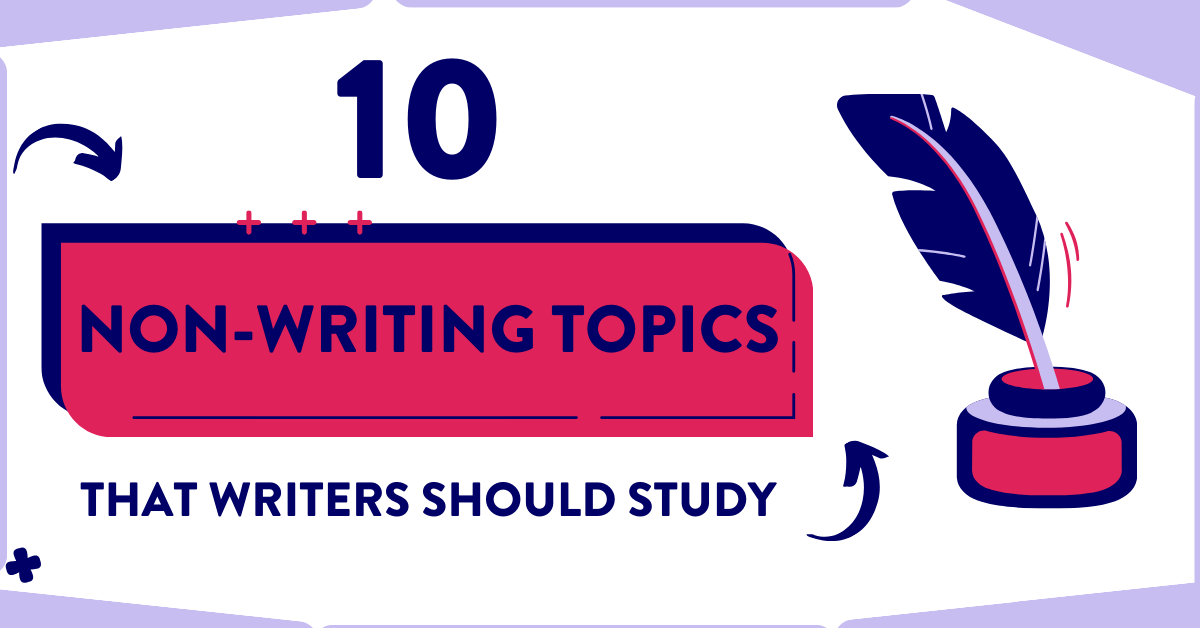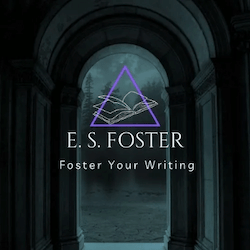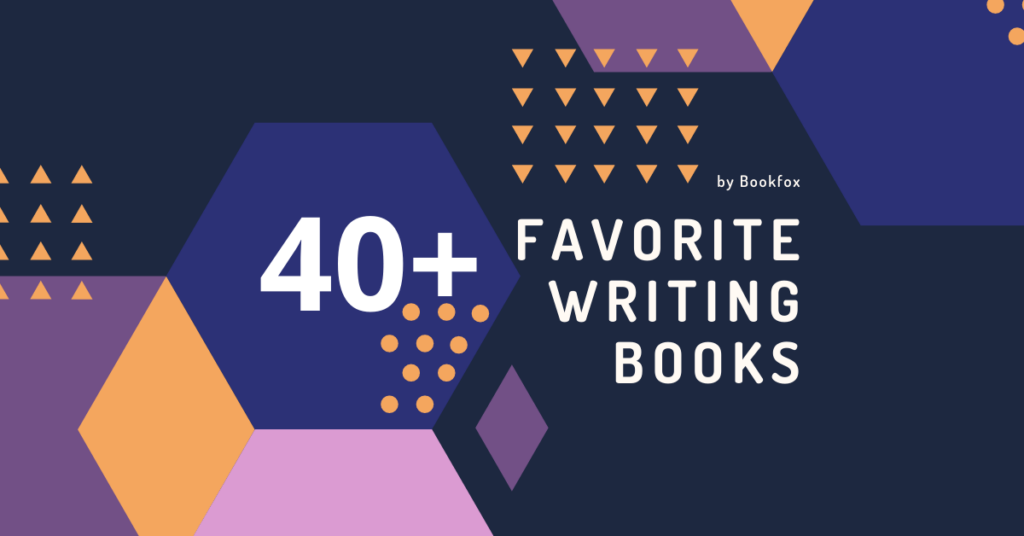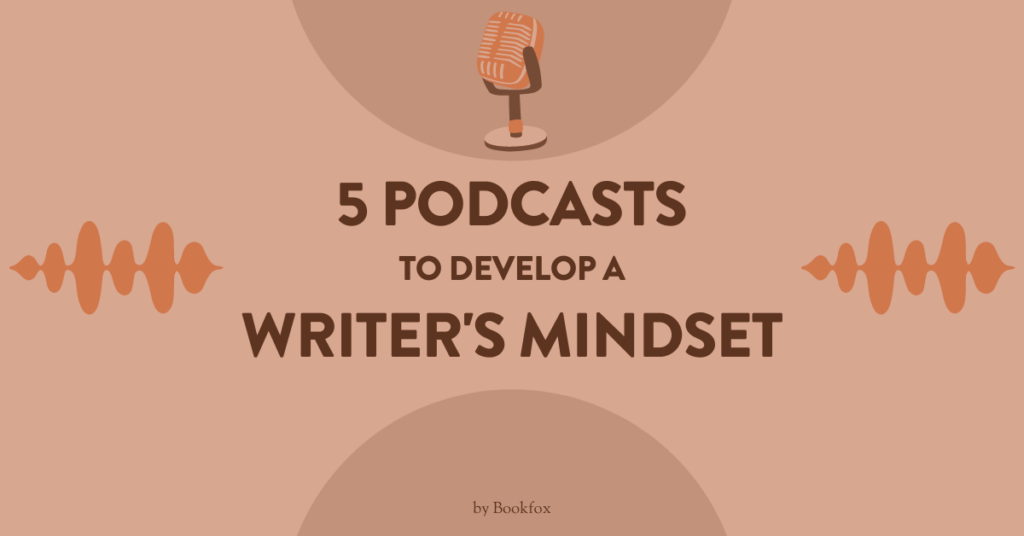
Guest post by E. S. Foster
What do you know other than writing?
While it’s the norm to specialize in one area and perform one specialized set of skills, understanding the mechanics of fields outside our typical scope can be highly beneficial.
You can’t just be a writer. You have to know another field.
Being able to understand and work in more than one area earns you the title of a “polymath,” a term slightly akin to a “jack of all trades.” Like Benjamin Franklin and Leonardo da Vinci, polymaths use their skills in one area to advance themselves in other areas.
But what does the polymath perspective look like to a writer?
Here are some major fields of study that writers could benefit from overall.
1. Mathematics
This might seem a bit counterintuitive. How can a field devoted to a specific set of rules have anything to do with getting creative and writing a story?
But authors like Lewis Carroll was a mathematician first before he was the children’s storyteller. Not only did he include math riddles and math problems, but a good portion of his Alice books were dedicated to counteracting the latest advancements in mathematics.
Specifically, he disliked the shift away from Euclidian geometry, so the nonsense aspects of Wonderland reflected his view of what a world without this mathematicswould look like.
Madeleine L’Engle wrote A Wrinkle in Time with many of the mathematical elements includedas part of her growing interest in math and science. She didn’t necessarily have mathematics in mind when she wrote the book and its subsequent sequels, but this interest helped advance her perspective on the major themes prevalent in her work, and it helped build her world too.
2. Music and Art
A song, a symphony, or any instrument cranking out a tune is more than just notes and sounds put together. A painting, even an abstract one, is more than just colors and shapes.
- Did you know Hans Christian Anderson was a paper cutting artist? He once stated, “Paper cutting is the prelude to writing,” in an 1867 letter.
- Bob Dylan is primarily known for his music, but he also won a Nobel Prize and the Pulitzer Prize for his poetry. His perspectives on poetry and music came together to garner him such an achievement.
Don’t waste any moment thinking that “distracting” yourself from your work by focusing on other creative outlets is going to harm you. Not only do writers need a break sometimes, but they also need to discover their expression in any way they can.
Craft your creative expression by painting a picture or writing a song. As you come back to your writing, you’ll better understand yourself and what matters to you.
3. Science
Science focuses on what we know and what we don’t know about our world. The same thing goes for writing. Sure, we can take creative liberties when we create new worlds, but understanding the features of our own is beneficial.
Some people were scientists before they were writers:
- Carl Sagan was an astronomer and astrophysicist who wrote Contact, his only novel, in 1985. Using his background in various scientific fields, he crafted a hard science fiction story. Even though his work contained extraterrestrials, the science behind the fiction was accurate thanks to his scientific study.
- Andy Weir also writes hard science fiction. While he mainly worked in computer science, he studied orbital mechanics when he wrote The Martian. This work has been lauded for its scientific accuracy.
Our world functions in a specific way and stepping away from that diminishes the accuracy you want to strive for. Readers won’t take your story seriously if you throw inaccurate science into an otherwise believable story.
When writing in any genre, you want to stick to the facts. If you create a new kind of physics in your world, stick to the rules you created. If you want your work to be accurate, study as much as possible. It takes a lot of brainpower, but a believable story is always vital.
4. Philosophy
Many works have philosophical undercurrents, whether writers realize it or not. A good book does more than simply tell a story. It makes a statement of some kind, and it’s up to readers to analyze the work and figure out what it is.
Philosophy focuses on the why of our reality. We ask ourselves big questions, which we don’t have the answer to. Why are we here? What are we meant to do? Writing asks those same questions. They take on the confusing nature of our world and offer a solution.
Writers may be interested in philosophy or philosophers in their own right.
- Figures such as Voltaire and Goethe wrote their own fiction, which placed philosophy at the forefront of the story.
- On the other hand, genre authors such as Philip K. Dick and Terry Goodkind are better known for the fiction aspect of their stories, though there is still plenty of time spent on the philosophical aspects to their work.
You aren’t likely to ever completely understand the world. That’s fine. As a writer, you can speculate and come up with your own answers. Not everyone will agree with you, but this is your chance to examine the world around you.
5. Religion
Some writers are known for being religious. Others are interested in one particular religion despite not sharing that faith, or they critique religion as an institution in some way.
Examples include:
- Writers such as C. S. Lewis, who was also an apologist and a theologian after converting from atheism.
- G. K. Chesterton was also a writer and apologist, as well as a philosopher whose fiction often focused on religion.
- Ursula K. Le Guin, on the other hand, included Daoism and other Eastern religions in a lot of her works, stating that both Buddhism and Daoism helped shape her perspective on life.
You don’t have to be religious to be a writer. Like any other field, religion might inspire you in different ways in your work. You might want to tackle the issues the world faces or ask the bigger religious questions.
It’s also not uncommon to create your own religion if you’re writing fantasy or science fiction. Often created religions metaphorically examine the issues we witness today or contribute to powerful worldbuilding.
6. Psychology
Psychology involves looking into the mind and understanding how we think and feel. It’s not uncommon for people to approach a story through a psychological analysis. Some writers are better known for how their work influenced today’s views on nature and society.
For example, H. G. Wells wrote a variety of books dedicated to humanity and science together. While his works speculated on the growing advancements in science and engineering, he also focused on human nature and conflicts between humanity and nature. His book The Island of Doctor Moreau is an amazing example of man vs. nature, society, and himself all at once.
Other writers have used fiction and nonfiction to examine their own psychological state. Sylvia Plath’s The Bell Jar is essentially a poetic biography about Plath’s own mental illness.
By looking inside ourselves, writers can evaluate their own history and recognize the importance of telling their history. And speaking of history….
7. History
Historical Fiction has always been a well-rounded genre. With all the different time periods available to study, there’s plenty of material to write about or take inspiration from.
Some more recent historical fiction books include:
- Daisy Jones & The Six by Taylor Jenkins Reid
- All the Light We Cannot See by Anthony Doerr.
In both cases, the author examined a period they were inspired by and crafted beautiful stories out of them.
Examining history has also helped writers when creating their own history for their own world. George R. R. Martin was inspired by the War of the Roses when writing his Song of Ice and Fire series, along with several other historical events.
Your personal history isn’t something to be ignored either. Many works are dedicated to a writer’s past, their experiences, their pain, their joy. Every life is a story. And every story deserves to be told, even if it might seem like no one wants to hear it.
Sometimes, the first place you can find inspiration in is yourself. Writing your life story down may be difficult, but it helps you work through your emotions and reconcile with your past. It may even be that your personal experiences help someone else out in the long run when they read your story.
8. Mythology and Folklore
Like history, mythology offers a wealth of stories to reexamine or recreate. Myths passed down for centuries have been told and retold in multiple ways.
Many cultures have similar types of stories, while others have stories unique to them. Some mythological stories, such as the myth of Icarus or the myth of Pandora’s Box, are well known, but there are plenty of other stories in all countries.
Look at the specific places that interest you. Or look at the myths from your own country. Plenty of writers have taken different myths and retold them:
- Rick Riordan’s Percy Jackson series
- J. R. R. Tolkien’s The Silmarillion (which used myths as inspiration for creating their own stories)
These stories are often the basis for new and exciting ideas. Besides retelling them in a new way, writers have found ways to touch on modern issues through the myths whose teachings are universal.
9. Politics
The political climate seems forever turbulent, but that shouldn’t stop a writer. Stories don’t have to be overly political, but they can touch on political topics through metaphor or allegory, as well as touch on a specific issue of the current time.
A great example of the first is Aldous Huxley’s Brave New World, which tackles topics such as a fictional government’s influence on the human body and mind through a society that is made up of a specific hierarchy. One of the reasons Brave New World is still timely today is because of how it tackled the issues in 1932 that we still face today.
Like the second, many writers have examined the political issues prevalent in society at the time and wrote to combat it. Ray Bradbury’s Fahrenheit 451 may have been set in a futuristic society, but Bradbury examined the idea of censorship and the shifting tide of entertainment through the novel.
One doesn’t need to look far to find any political headlines. It might seem overwhelming and tiresome to constantly hear about politics, but like any other major field, navigating an issue through a story might help others out in the long run.
10. Culture
Lastly, think about your culture. Where do you come from? What people groups belong to your heritage? What stories have they told in the past?
Stories from and about other cultures need to be told. A lot of history—how people live and what they believe in—has been pushed to the side for a long time. These are stories that need to be told. Books such as:
- The House on Mango Street by Sandra Sisneros
- Kira Kira by Cynthia Kadohata
These books depict a specific culture and how the characters navigate various triumphs and challenges.
There’s more to it than we think when it comes to culture too. Everyone has been or will be part of a community or area that is unique. Think of books like Marjorie Kinnan Rawling’s The Yearling, set in the communities in the Florida Everglades, for example.
The best way to study culture and community is to speak with others about their experiences or look back on your own experience in those sectors. Additionally, reading books by an author from that culture will give you firsthand experience of the culture you wish to study.
Conclusion
In the end, writing isn’t just writing. Look for inspiration everywhere you can find it.
This doesn’t mean that you need to become a “polymath” or master multiple fields of study just to write, but feel free to examine any of the opportunities around you to learn more about the writing craft.
Take the time to look at your own experiences as well. While being a jack of all trades means researching more than one area, you shouldn’t ignore how you got to this point. Writers should take inspiration from anywhere they can find it.



